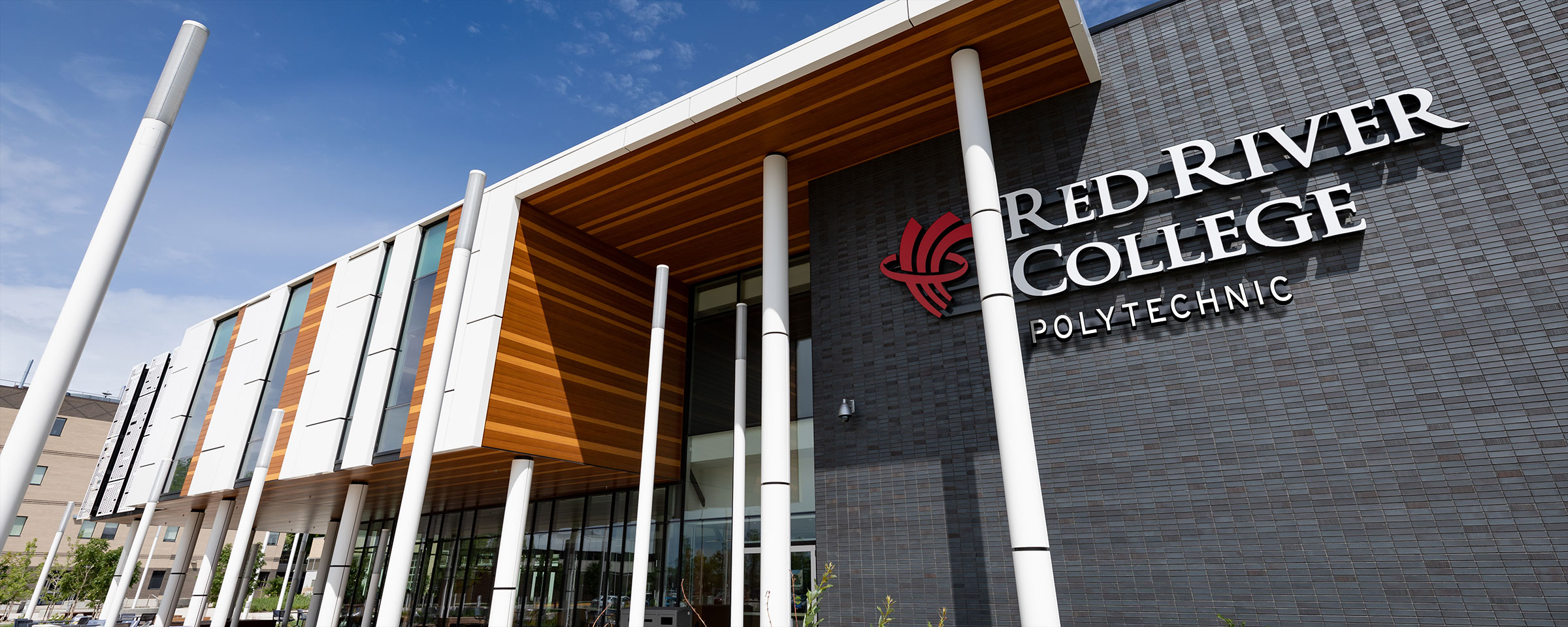RRC Polytech students showcase automation project and the power of applied research in Ottawa

Three RRC Polytech engineering students were recently selected to attend a national symposium in Ottawa to showcase a project that highlights what Manitoba’s polytechnic has to offer its students and industry partners.
Electrical Engineering student, Alexander Talgoy was joined by his capstone project partners and Instrumentation and Control Engineering Technology students Trey Blank and Matt Moura at ‘CICan on the Hill’ where they rubbed elbows with Parliamentarians, academic and industry leaders, and other showcasing students from across Canada.
“It was a fantastic opportunity for us to share our work and represent what Canadian college students are capable of,” said Talgoy. “We had a lot of interest in our project and our exhibit, which included a robot, and it was neat to see the breadth of work being done by students across the country in a range of disciplines.”
For their project, the students solved an increasingly common challenge faced by manufacturers of all sizes – integration of disparate tools and technologies when automating repetitive tasks; it was inspired by a client project from RRC Polytech’s Technology Access Centre for Aerospace and Manufacturing (TACAM).
TACAM is funded through the Natural Sciences and Engineering Research Council of Canada to support companies in Manitoba’s aerospace and manufacturing sectors with applied research, business and technical services, and training.
“We are seeing a lot of demand for this type of work from industry, so it really made sense for us to support the students and showcase this project,” said Dr. Dele Ola, TACAM director.
The students were backed by their instructor, Liting Han and Devin McArthur, a recent RRC Polytech grad who joined TACAM as a research technologist after completing his own project term with the Centre.
“In this case, we had previously solved our client’s automation issue, but not in the way we were hoping, so we posed this challenge to the students as part of their capstone project.”
Essentially, the students were required to completely automate identification and appropriate placement of varied objects moving along a conveyor belt using a specialized camera and software, a conveyer belt with programmable drive, a robotic arm, and a programmable logic controller.
“One of the key challenges the students faced was getting the various technologies to communicate with each other, which is difficult as it is not something they have been purposefully built to do,” said Han. “There isn’t a manual for this type of thing, so the students had to use trial and error, applying the concepts they’ve learned in class.”
The connection and value of RRC Polytech’s applied research capacity to student experience and development couldn’t be clearer to Han.
“We customize course materials based on the technologies TACAM has made available to us,” said Han. “They learn about them in the classroom and then move to the lab – or factory – to apply what they’ve learned using the actual tools and technologies. It’s transformative.”
Along with access to the tools and tech, the students received trouble shooting support from TACAM staff, and were able conduct their work in the Smart Factory which was both a major motivator and success factor for the students.
“Our team was excited not just to apply our knowledge to a real-world problem, but to experience the realistic working environment and use the advanced tools and systems offered by the Smart Factory,” said Talgoy.
The Smart Factory, located at the RRC Polytech’s Notre Dame campus, hosts an array of cutting-edge manufacturing technologies along with traditional manufacturing technologies – allowing students, researchers, and companies to try out the latest manufacturing tech.
The project is still operational in the Smart Factory and available for demonstration. Proud of their work, the team hopes it can remain in place for a while before the tools and systems are needed by another industry project.
